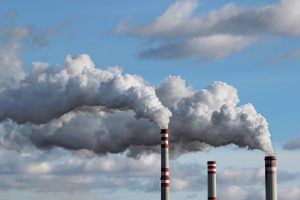
Liu noted that growing air pollution over the course of a few days could lead to more hospitalizations as a result of spiking blood pressure. Individuals living in high pollution areas could end up living with chronic high blood pressure.
High blood pressure – hypertension – is a risk factor for stroke and heart disease, which is the number one killer worldwide. Furthermore, high blood pressure is associated with 17 percent of fatalities worldwide. Liu added, “It is urgent to take more actions to protect our environment and clean the air quality.”
Liu suggested that people living in high pollution areas should “closely focus on the air quality every day, and try to avoid outdoor activities or wear filtered masks when air quality is poor.”
The study listed the causes of high blood pressure, including genetics, lifestyle habits, and environmental factors.
The researchers looked at studies from Brazil, Canada, China, Denmark, Germany, Iran, Spain, Taiwan, and the U.S. The researchers defined high blood pressure as 140/90. Taking hypertension drugs was also identified as having high blood pressure.
Pollutants that were found to affect blood pressure were sulfur dioxide, certain types of particulate matter, and nitrogen oxide.
Dr. Gregg Fonarow, a professor of cardiology at the University of California, Los Angeles, commented, “These findings suggest that strategies to effectively reduce exposure to air pollution may have cardiovascular benefits.”
The researchers suggest avoiding outdoor activities when smog alerts are put into place to prevent higher exposure to air pollution.
Also, read Bel Marra Health’s article on 5 fixes that can help you control your blood pressure.